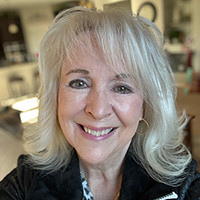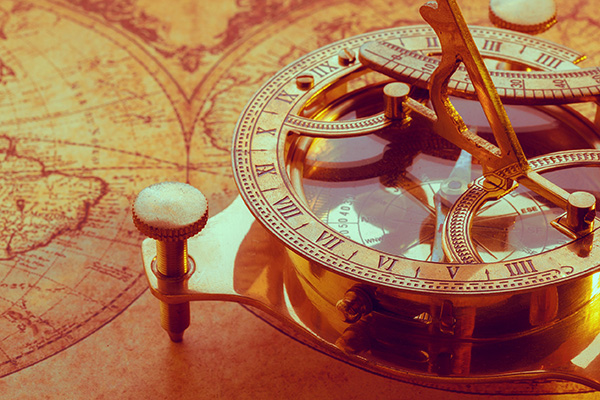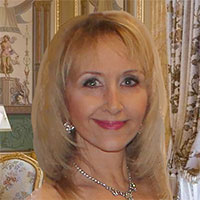 Genuine healing transcends merely alleviating lower back discomfort or soothing anxious feelings. It involves nurturing the “entire you,” enabling you to experience greater harmony, happiness, and tranquility.
Genuine healing transcends merely alleviating lower back discomfort or soothing anxious feelings. It involves nurturing the “entire you,” enabling you to experience greater harmony, happiness, and tranquility.
This encompasses caring for your physical body, emotional heart, mental faculties, and spiritual essence. While each of these aspects can be addressed individually, the most profound transformation occurs when they are all cultivated simultaneously. This is the heart of holistic healing.
For numerous individuals new to holistic healing, it might appear intricate, enigmatic, or even daunting. There’s often a sense of curiosity, along with uncertainty about how to start, especially for those who have never tried it.
Some express concerns about their level of knowledge or assume it’s a practice reserved for those with unique spiritual awareness or advanced esoteric wisdom. Others may fear making mistakes or worry about understanding what occurs during a session.
Such emotions are perfectly natural, yet they can prevent you from seeking out something that could offer profound support and change your life.
The reality is, holistic healing need not be convoluted or intimidating. There’s no requirement to know every method or to grasp all the intricacies to reap its benefits. A skilled practitioner will assist you in navigating the best path, even if you’ve never traveled it before.
If this is your first holistic healing session, typically you may come in with a specific need for assistance, but a proficient healer will take the time to tune into what your true requirements are. Occasionally, they’ll utilize the technique you asked for, but at other times, they might recommend an alternative method, or even blend various techniques, to support you optimally. The objective is not merely short-term relief; it’s about embarking on a healing journey that you can continue long after the session concludes.
Health is a condition of complete harmony among body, mind, and spirit. When one is liberated from physical impairments and mental distractions, the gates of the soul open ~ B.K.S. Iyengar
The Five Styles Of Healing
Energy healing can manifest in various ways, with each style having a unique method of assisting the body, mind, and spirit in regaining balance.
There are three primary styles emphasizing how healing energy flows between the practitioner and the recipient. Additionally, there are two other approaches where you either become your own healer or draw healing energy from nature or your surroundings. Let’s examine each in detail.
HANDS-ON HEALING
This is the most classical and straightforward type of energy healing. The practitioner gently places their hands on, or just above, the body. This touch is not intended for muscle manipulation or massage; it’s about directing energy to areas where it’s most required.
Hands-on healing may evoke sensations of warmth, tingling, or profound relaxation. Some individuals perceive waves of energy coursing through them, while others simply experience a tranquil stillness. Modalities like Reiki, therapeutic touch, and certain forms of shamanic healing fall into this category. It’s often selected when individuals seek a tangible, physical connection to feel secure and supported throughout the healing experience.
HANDS-FREE HEALING
This technique involves the healer working within your energy field without any physical contact. They may move their hands around your body, make sweeping motions to dispel blockages, or employ tools such as feathers, bells, or tuning forks to modify energy.
This method proves particularly beneficial for those sensitive to physical touch or when the concern seems more energetic than corporeal. Recipients often report feeling as if an invisible force is “lifting” burdens from them or noticing a cool or warm breeze across their skin, even without direct contact.
DISTANCE HEALING
One of the most unexpected forms for beginners, distance healing occurs when a practitioner transmits energy to you without being physically present. This can happen across a room, throughout the country, or even globally.
Distance healing operates on the principle that energy is not confined by physical space or time—it flows where intention and focus lead it. The practitioner might meditate, visualize you, or utilize symbols and prayers to connect with your energy field. Many individuals express feeling lighter, calmer, or even experiencing physical relief after a distance healing session, similarly to in-person healing.
SELF-HEALING / INTENTIONAL HEALING
<pIn this approach, you serve as both the healer and the one being healed. Rather than depending on another to guide the energy, you learn to engage with your own energy field, becoming an active participant in your health. This method is profoundly empowering since it teaches you to heed your body’s signals, trust your intuition, and assume an active role in your healing process.
ENVIRONMENTAL / RESONANCE HEALING
In certain cases, the “healer” may not be a person at all; instead, it may be the surrounding environment, vibrations, or the natural world. This healing style is based on the belief that specific settings or frequencies can facilitate the body in achieving balance. In environmental healing, you aren’t “receiving” energy so much as positioning yourself amidst supportive energies that encourage your system to recalibrate.
Holistic medicine is not an alternative but rather the foundation of the healing craft ~ George Vithoulkas
Holistic Healing Techniques
Within the five styles of healing, a variety of techniques, systems, and modalities exist. Here are just some of the more recognized methods you might encounter:
Acupuncture: This traditional Chinese medicine practice employs thin needles inserted at specific points on the body to restore energy flow (qi) and can assist with pain management, stress alleviation, and overall wellness.
Aromatherapy: Utilizing essential oils derived from plants to enhance mood, bolster the immune system, and create a healing atmosphere. Oils may be diffused, applied to the skin, or inhaled.
Ayurveda: An ancient Indian practice that focuses on diet, herbs, massage, and lifestyle to balance the body’s three doshas (energy types), seeking to harmonize body, mind, and spirit.
Chakra Balancing: This practice aims to align the body’s seven primary energy centers to restore emotional, physical, and spiritual equilibrium. Techniques can include meditation, crystals, sound, or hands-on healing.
Breathwork: Controlled breathing methods that can soothe the mind, release stored emotions, and alter the body’s energy state. Examples include yogic pranayama, holotropic breathwork, and circular breathing.
Crystal Healing: Utilizing crystals and gemstones to influence the energy field of the body. Each stone possesses unique properties that can aid in physical, emotional, or spiritual healing.
Emotional Freedom Technique (EFT/Tapping): Tapping on designated meridian points while focusing on an emotional or physical issue to alleviate stress and rewire limiting beliefs.
Energy Cord Cutting: This ritual or meditative practice helps release unhealthy energetic ties to individuals, locations, or circumstances, allowing your energy to return to a balanced, independent state.
Herbal Medicine: Employing medicinal plants to restore health and vitality. Herbs can be utilized as teas, tinctures, capsules, or in topical applications.
Inner Child Healing: Engaging with the part of you that still holds childhood memories, feelings, and unfulfilled needs, which facilitates the resolution of deep-seated issues and emotional balance.
Light Therapy: Exposure to specific wavelengths of light to enhance mood, regulate sleep patterns, and assist in cellular repair. This can be beneficial for seasonal affective disorder, skin conditions, and overall energy balance.
Massage & Bodywork: Direct manipulation of muscles and tissues to alleviate tension, enhance circulation, and encourage the smooth flow of energy. Styles range from gentle Swedish massage to more intense deep tissue and Thai bodywork.
Meditation & Prayer: Quieting the mind and inwardly focusing to connect with inner peace, divine insight, or universal energy. Both practices can help mitigate stress and deepen spiritual connections.
Past Life Regression: A guided experience to delve into previous existence, often through hypnosis or deep meditation, aiming to unveil and free patterns or energies affecting you currently.
Pranic Healing: This method utilizes sweeping hand movements to cleanse the aura and energize the body with prana (life energy) without physical contact.
Psychic Reading & Medical Intuition: Gaining insight from a psychic or intuitive who aligns with your energy, spirit guides, or higher self, revealing hidden influences, patterns, and healing paths.
Qi Gong: A Chinese practice combining movement and breath designed to cultivate and balance qi (life force). Slow, flowing movements foster relaxation and vitality.
Reflexology: Applying pressure to certain points on the feet, hands, or ears corresponding to bodily organs and systems, stimulating energy flow and facilitating natural healing.
Reiki: This Japanese healing technique channels universal life force energy through practitioners’ hands to promote relaxation, alleviate stress, and foster natural healing, whether in-person or remotely.
Shadow Work: The exploration and integration of hidden or suppressed parts of the self, allowing for the healing of emotional injuries and reclaiming personal strength.
Shamanic Healing: Age-old practices conducted by shamans to restore fragmented aspects of one’s spirit or soul, often due to trauma, with rituals involving drumming, chanting, and journeys into altered states of consciousness.
Sound Healing: Immersing in therapeutic vibrations from instruments like singing bowls, gongs, or tuning forks to help alleviate tension, regulate energy, and induce deep relaxation.
Visualization: Employing mental imagery to channel healing energy, eliminate blockages, and enhance physical and emotional wellness, often alongside meditation or breathwork for amplified results.
Yoga Therapy: Utilizing specific yoga poses, breath techniques, and meditation to address physical conditions and emotional imbalances. This is a gentle yet effective self-healing practice.
Each healer possesses their own set of tools and unique style. The most crucial element is discovering the right match for you. There is no universal solution in healing. What benefits your friend may not be what your body or spirit currently requires. An adept healer will lead you to the method that resonates with your energy and circumstances.
The essence lies in receptiveness. Healing is most effective when you are open, willing to trust the process, and allow yourself to receive. Approaching with skepticism, defensiveness, or negativity is akin to attempting to nourish a plant while shielding it with an umbrella. The nourishment cannot penetrate in that manner.
Health encompasses more than the absence of illness; it represents a dynamic state supporting a person’s capacity to adapt and flourish across varying environments ~ Iva Lloyd
Why The Mind Often Needs The Most Healing
Many practitioners and readers might share this insight: your soul is intrinsically complete and perfect. It doesn’t require “fixing.” Instead, it’s the ego mind that bears stress, anxiety, fear, and pain, which frequently manifest in the body. When the mind achieves tranquility, the body often follows suit. This is why much of the healing work concentrates on aiding you to release what burdens you mentally and emotionally.
This journey usually starts with articulating what you genuinely desire to heal and understanding its significance to you. It involves delving into your needs and motivations at a profound level, so you can operate from a place of sincerity and intention. From this foundation, it’s about relinquishing anything that doesn’t contribute to your wellness—be it habits, beliefs, or residual emotional weight—and redirecting your focus to what truly matters in your life.
How To Get The Most From A Healing Session
If you’re preparing for an energy healing session, a bit of preparation can significantly enhance the depth of your experience. Healing is not merely an event that occurs to you; it’s an interactive process involving your mind, heart, and spirit.
By arriving with the correct mindset and executing a few straightforward steps before and after your session, you can facilitate smoother energy flow and ensure that the benefits extend well beyond your time with the practitioner. Here are some gentle yet impactful ways to ready yourself for the journey.
OPEN MIND AND HEART
As you enter a healing session, make an effort to leave your expectations behind. Energy work often reveals itself in unforeseen manners, and maintaining openness permits the process to unfold more organically. Trust that whatever arises is precisely what you require at that moment, even if it doesn’t align with your anticipations.
SET AN INTENTION
Prior to your session, take a moment to contemplate what you wish to change, release, or welcome into your life. Your intention serves as a compass, directing the energy towards your desired goal. It doesn’t need to be elaborate; even a simple statement such as “I wish to feel more at peace” can effectively set the tone.
BE HONEST WITH YOUR HEALER
The more candidly you express your current feelings—physically, emotionally, and spiritually—the better your practitioner can customize the session to fit your requirements. If something has been troubling you, or if you feel disconnected, share that openly. Honesty engenders trust and creates a more effective channel for healing energy to flow.
REST AFTERWARDS
Healing does not cease when you rise from the table. Your body and mind will continue to process the energy work for hours or even days subsequent to the session. Allow yourself the grace to slow down, hydrate, and avoid rushing back into stressful activities.
NOTICE SMALL CHANGES
Energy shifts can be subtle and gradual, so remain attuned to the small signs. You may observe enhanced sleep, a sense of calm in situations that typically disturb you, or more positive thought patterns. These minor indicators confirm that the healing is integrating into your everyday life.
TAKE CARE OF YOURSELF
Bolster the work accomplished by nourishing your body with wholesome foods, staying well-hydrated, and allowing time for rest. Simple self-care routines—such as immersing yourself in nature, journaling, or gentle stretches—can help sustain the benefits of your session and keep your energy in equilibrium.
Healing is not confined to a single hour; it represents a continual journey. One session may unlock a door, but it is you who must step through and continue on.
By nurturing your mind, opening your heart, strengthening your body, and maintaining a connection to your spirit, you cultivate balance in your life. From this vantage point, you not only achieve healing but also radiate your light and contribute to others’ healing journeys too.
|
 About The Author: Venus About The Author: Venus
Residing in Arizona, Venus has assisted clients for over two decades with her extensive array of psychic abilities. Gifted with Clairvoyance, Clairaudience, Clairsentience, and Empathic skills, she is also a certified Life Coach and a Reiki practitioner. Departed loved ones frequently join her readings, either as invited guests or showing up spontaneously to convey their messages. Insights also arise from her direct communications with Spirit and Angels, offering clients the guidance they need to progress towards happiness, rewards, and success in their lives. Alongside being a psychic, life coach, and reiki practitioner, she has also been a teacher and led seminars for the past ten years to empower others with their higher knowledge. For a compassionate psychic capable of immediate tuning in and channeling without tools, you’ll want a reading with Venus at: PsychicAccess.com.
|
Holistic healing is a form of alternative therapy that encompasses the entire individual – mind, body, and spirit – to foster overall health and wellness. It aims to address the fundamental causes of health concerns, rather than merely focusing on symptoms, and underscores the importance of achieving balance and harmony within the body.
For those just beginning to explore holistic healing, it may feel daunting to know how to begin. Below is an introduction to some foundational principles and practices associated with holistic healing:
1. Mind-body connection: Holistic healing acknowledges the relationship between mind and body, understanding how thoughts, feelings, and beliefs can influence physical health. Techniques like meditation, mindfulness, and visualization can foster emotional and mental wellness, which in turn can yield positive impacts on physical health.
2. Nutrition: Holistic healing places tremendous importance on a nutritious diet in sustaining overall health. Consuming whole, nutrient-rich foods while steering clear of processed and refined options can bolster the body’s innate healing capabilities and prevent illness.
3. Energy healing: Many holistic practices, including Reiki, acupuncture, and crystal therapy, engage the body’s energy systems to promote healing and restore balance. These methods can help eliminate blockages in energy pathways and invite harmony back into the body.
4. Herbal medicine: Herbal treatments have long been utilized to address a variety of health challenges and are integral to holistic healing. Herbs such as ginger, turmeric, and chamomile boast potent healing qualities and can aid in supporting the body’s natural healing mechanisms.
5. Bodywork: Techniques like massage, chiropractic adjustments, and other bodywork forms can relieve tension, enhance circulation, and encourage relaxation. These approaches are beneficial for improving physical wellness while reducing stress and anxiety.
6. Holistic lifestyle practices: Beyond specific healing modalities, holistic healing emphasizes lifestyle habits such as regular exercise, sufficient sleep, and effective stress management. Caring for your body and mind through consistent physical activity, adequate rest, and stress alleviation activities can contribute significantly to overall health and well-being.
In summary, holistic healing provides a comprehensive strategy for health and wellness that considers the entire individual – mind, body, and spirit. By incorporating holistic practices into your everyday life, you can nurture your body’s natural healing processes and promote overall health and well-being. Continue reading →


















